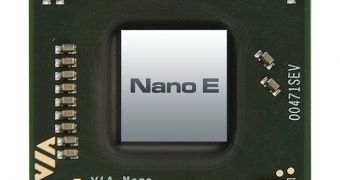There was a time when VIA's name stood at the same level as AMD's and Intel's, even if that was more for chipsets than CPUs. ASUS may just help the company regain some of that prestige by enlisting its aid in tablet development.
VIA doesn't make much today, besides processors, chipsets and system-on-chip devices for the embedded industry.
Still, there is one consumer product type where its NANO series of processors, and other technologies, could thrive: small media tablets.
ASUS is convinced that it can reap significant benefits from partnering with VIA. At least this is what sources cited by China Economic News Service say.
Slates have definitely taken off, affecting laptop sales significantly over the past two years. It is obvious, according to some analysts, that they have become a part of people's livelihoods already, and will stay that way for decades.
Wearable augmented reality displays like Google’s Project Glass could eventually take over the same role, but that is a long time in the future, even if the first prototypes get completed in 2014.
That means that notebook makers need to stay strong on the tablet front. Sadly, there aren't many options for variety yet.
ASUS intends to make a name for itself by launching very cheap tablets as soon as possible, as early as 2013 in fact.
Intel, NVIDIA and Qualcomm don't really have the cheapest CPUs and SoCs though, and the accompanying hardware isn't all that cheap either.
That means a new solution is needed, and ASUS thinks VIA can provide it. Even if the final products are weaker than the rest, the price of $99 / 75.59-99 Euro to $149 / 113-149 Euro will compensate for it. As long as HD videos run well, and the web can be browsed quickly, there shouldn't be any reason not to buy the 7-inch products. A long battery life would definitely act as incentive as well.
ASUS will supposedly ask VIA to make ARM Cortex-A9-based system-on-chip devices. Depending on how well the plans pan out, the former may succeed in its goal of shipping 12 million tablets worldwide next year (2013).
Neither company has commented on these rumors though. Also, ASUS denied previous rumors about ARM adoption, which might cover this instance as well.

 14 DAY TRIAL //
14 DAY TRIAL //